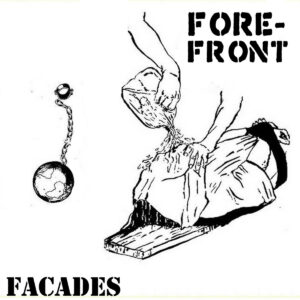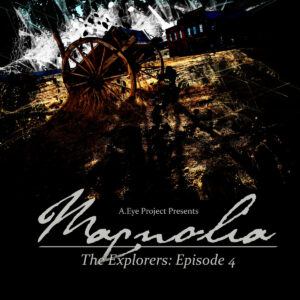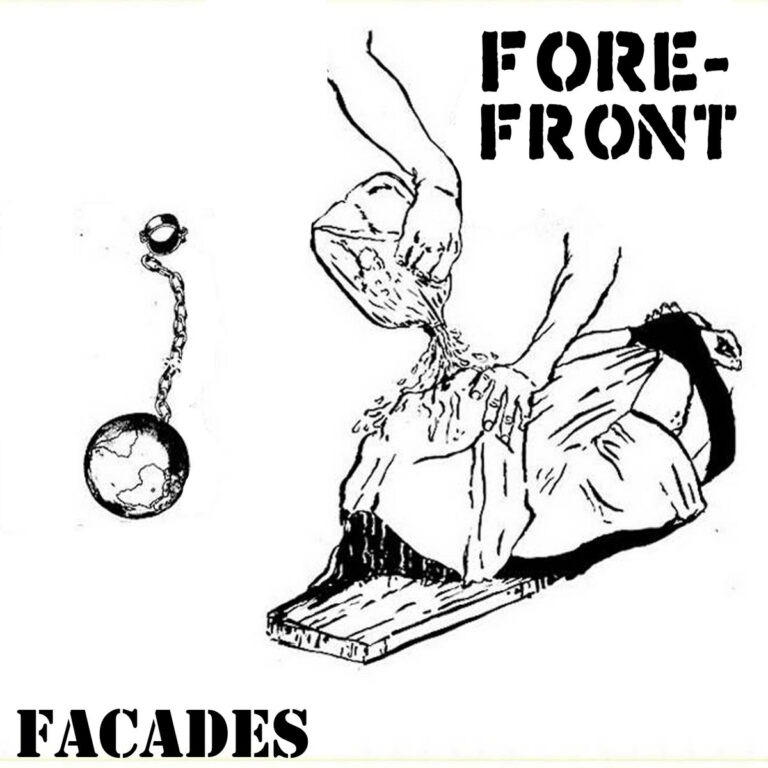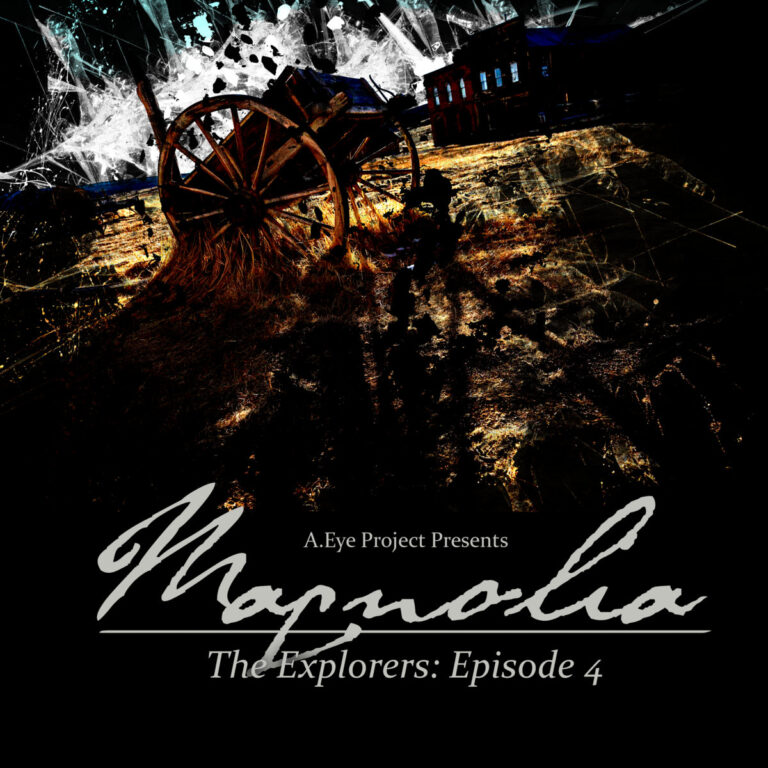What starts out dreamily pacific, as in opening track “Overthoughts,” grows in intensity and carves out a rock and roll cave out of crashing waves. It’s a hidden place, that cove just beyond the riptide where life blossoms unhindered and untended, like too many thoughts in a rough but evergreen garden. “Talk Radio” returns listeners to the city, a place where dreams persist but become bound up in the compelling rhythms and echoing, persistent voices. By the time you hit the middle of this nine-track wonder, you’ll be dreaming the colors the singer screams about as the gritty, art-affected guitar courses through them right there with you. All that brightness is followed by a reverie. As “CandyCloud” resolves and nods out of existence, “The 411” rings and jangles, announcing a new reality, awake and stunningly diffuse. What follows is most excellent, like a dream remembered.
Forefront Facades (Self-released)
Here’s an EP of politically inflected, California-style anti-fascist hardcore punk presented by an trio of local lads whose names are Ace, Leo and Shane. The recording could certainly have been much better. But in this case, it really is a function of the band’s authenticity, because, bluntly stated, and in an overarching sense, this album funking rocks. That’s right, ladies and germs, there are still musical subcultures out there devoted to real punk rock precepts while not being so devoted to hero worship or fashion sensibilities as to ignore reality to concentrate on things like songwriting skills. This album has what it takes, from epic tuneage like the droning and deliriously propulsive “Hateful Youth” to the about-to-explode-like-a beehive-with-rabies middle track “Blasphemy.” Anti-fascist anthem “Facades” finishes off this essential citizen’s collection of what the world needs now.
Sonic Reducer:
Hmm … Is this music from a video game? Is it the soundtrack to a great action-adventure film? Is it EDM of the trance variety? While I’m not hep enough to answer the previous questions, it is abundantly clear that, in the most general sense, this is art music. Specifically it belongs to a genre called program music. In this case, it’s well composed and the recording is clear and engaging for its taut sonic range and wide depth of field. Program music aims to tell a story and in this case, the narrative is buoyed by song titles that augment an extra-musical narrative with nautical overtones. Never mind that such incorporates the tools of the 21st century. This tour de force is more closely related to Berlioz’ Symphonie fantastique than it is to the work of Paul Oakenfold. And that’s what makes it so cool.






